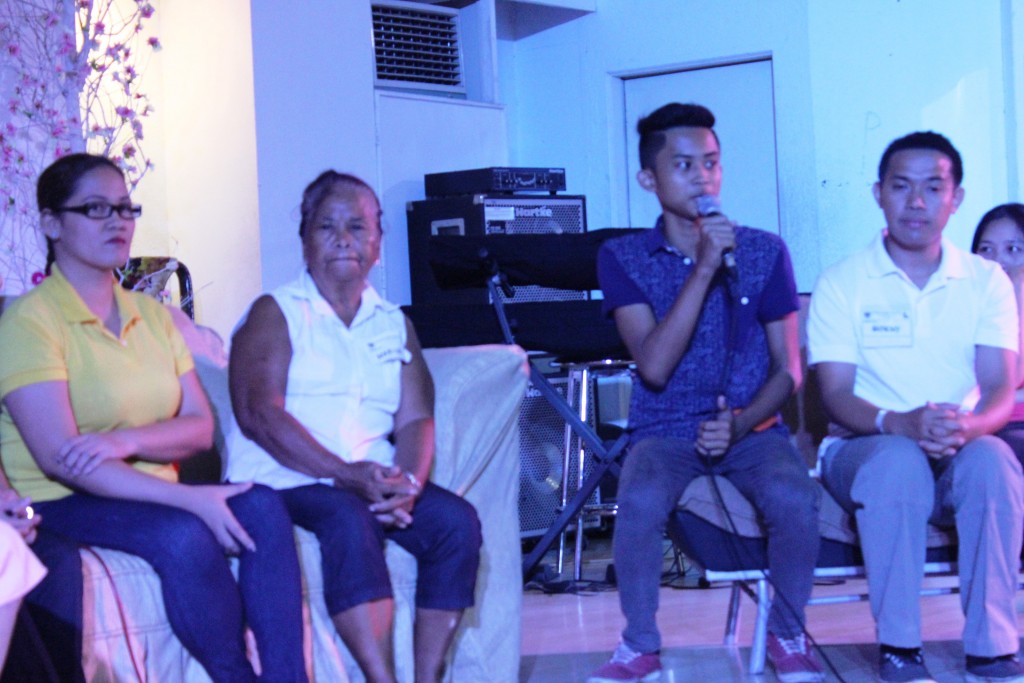
Like many youth in this computer age, 16-year-old Emmanuel John Ilagan of Sta. Mesa, Manila is a computer game fanatic.
“Dati akong laman ng kalsada o computer shop at laging kasama ang barkada sa paghahamon ng away at pustahan pagdating sa paglalaro ng DOTA o Defense of the Ancient (I used to spend my time on the streets or inside computer shops with my friends, trying to pick fights. I also spent much of my time betting on and playing the computer game DOTA or Defense of the Ancient),” Emmanuel narrated.
DOTA is a famous computer game which has notoriously been reported as the reason why many youth cut classes from school. Due to its violent nature, the game has also led to gang fights.
Emmanuel affirmed that he used to spend too much time on the internet until he became a beneficiary of the Pantawid Pamilyang Pilipino Program implemented by the Department of Social Welfare and Development (DSWD).
He is grateful that his family was included in the program. The cash grants provided by the program has helped them meet their food and educational needs, which his parents can hardly afford.
His father is a carpenter, while his mother does laundry work in their neighborhood. Together, the family earns around P3,000 per week of hard labor, but still not enough to cover the expenses of the family with five children.
Emmanuel’s family is just one of the 245,628 Pantawid Pamilya beneficiaries in Metro Manila.
Pantawid Pamilya is a human development program that invests in the health and education of poor families, primarily those with children aged 0-18. It provides cash grants to partner-beneficiaries who comply with the conditions of sending their children to school, bringing them to health centers for checkups, and attending the monthly Family Development Sessions (FDS).
Values formation
His transformation came after attending the values formation activities conducted by I-Help, a partner-civil society organization (CSO) of the DSWD in the implementation of FDS.
FDS is conducted monthly by DSWD and partners from non-government organizations, private sector, and civil society organizations. It serves as a venue where topics on effective parenting, husband and wife relationships, child development, laws affecting the Filipino family, gender and development and home management, active citizenship, and electoral education are discussed.
Attendance to FDS is one of the conditions to continue receiving the cash grants under the Pantawid Pamilya.
“Isang beses ay nag-invite po ang I-Help sa mga magulang na dumadalo sa FDS na ‘yung kanilang mga anak na kabataan ay puwedeng uma-attend sa Youth Fellowship nila at ‘yun po ang nagdulot ng magandang pagababago sa aking buhay. Napakalaking pagbabago po sa aking pagkatao (I-Help informed parents attending the FDS that their teenage children can also attend the Youth Fellowship. That was the turning point in my life. My attendance to the activity really created a positive change in my lifestyle),” he emphasized.
Today, Emmanuel is slowly quitting from his computer game addiction. Instead of spending his time in computer shops, he now busies himself as a church youth leader where he teaches his fellow teenagers about the bible and how to be more responsible.
This coming school opening, Emmanuel will enroll at the Polytechnic University of the Philippines where he will take up Bachelor of Arts in Filipinology.
Emmanuel is among the more than 300,000 Pantawid Pamilya youth who graduated from high school this March, and who have been given a fighting chance to achieve a better life.
In 2013, the DSWD expanded the coverage of the program to include the 15-18 age bracket to ensure that the children-beneficiaries will graduate from high school, and have a higher rate of employability.
DSWD Secretary Corazon Juliano-Soliman expressed gratitude to CSOs like I-Help that continue to partner with the Department by providing avenues where Pantawid Pamilya beneficiaries are able to recognize their strengths and potential. ###


